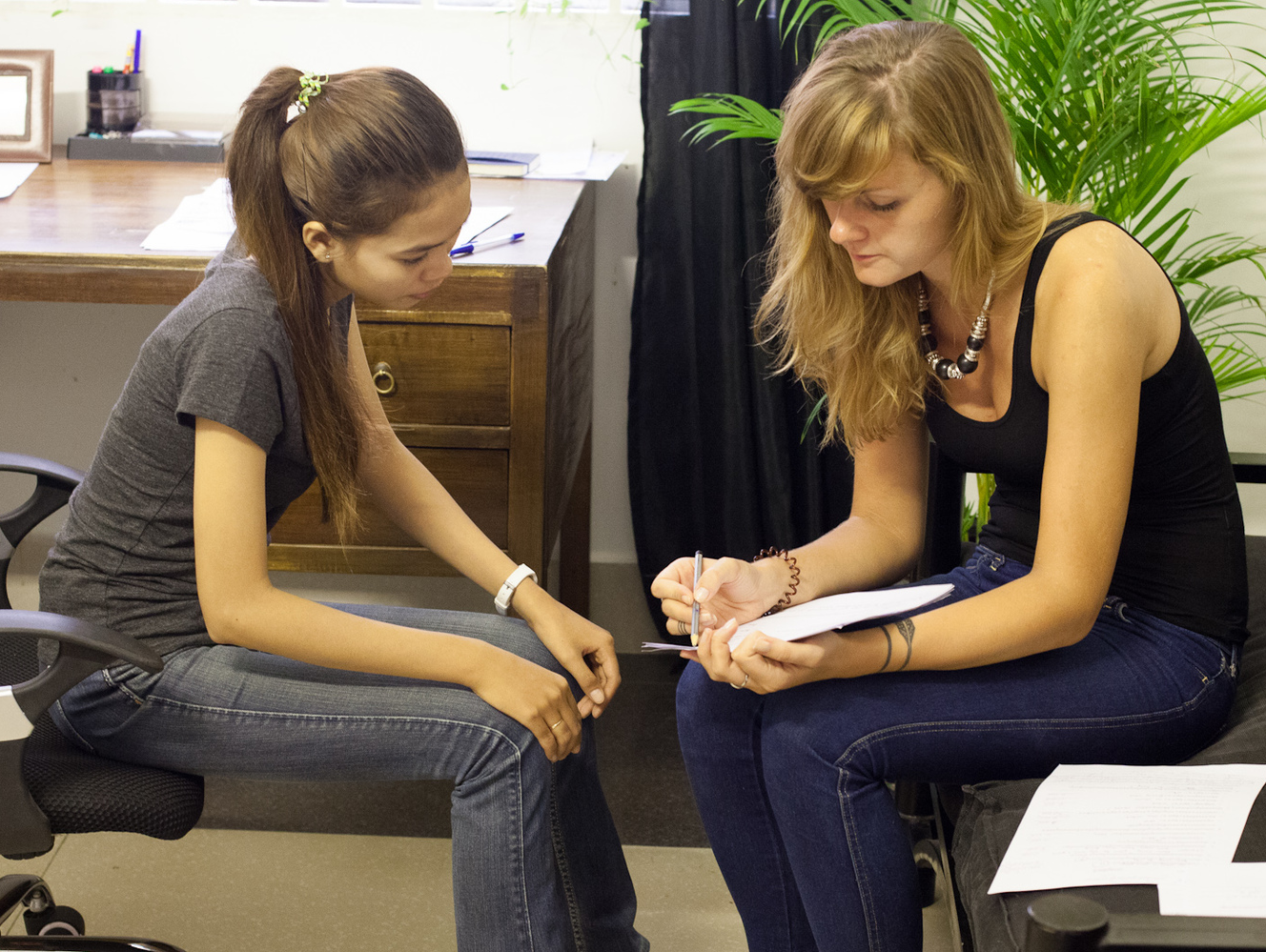Here’s a unique strength of Alongsiders with a perplexing challenge.
Alongsider mentors are empowering vulnerable children – and stirring up local churches – in rural communities that are “off the radar” for most ministries and development organizations.
The key strength of Alongsiders is the physical presence of mentors serving out of relationships in their own villages.
But consider this. Today almost 80 percent of Cambodians live in rural communities, but within 15 years the majority of Cambodians (60 percent) will be living in cities. We’re in the midst of a huge migration of Cambodians to cities, and the people most likely to move in the next decade are young people in the age group we are working with!
Meet Marketa, our intern from Slovakia. Her role is to research how this rural to urban migration is affecting Alongsiders in Cambodia.
“The main concern is if the Alongsider mentors move, how is this going to affect the relationships between them and their little brothers and sisters? ”
Although we’re just starting to formally measure the impact of urbanization on our work, Alongsiders Cambodia has been aware of the trend for some time. Here are some steps they have taken to address it.
- They encourage mentors who think they will move to choose little brothers and sisters who are older (e.g., twelve rather than six or eight years old).
- They are allowing older people who are less likely to move (e.g., in their late twenties and thirties) to become mentors.
- They are strategizing with small group leaders and mentors about how mentors can best maintain relationships, such as on weekend trips home and by phone.
- Of course, they are also working in urban communities with high concentrations of vulnerable children.
This week Marketa obtained her first data via a survey of small group leaders from around the country. At first glance, the challenge is plain to see.
In a group of 15 mentors from Kandal Province, 8 have moved to the city. In another group of 19 from the same region, 5 have moved. Yet in the entire province of Kampong Chhnang, 10 of 68 have moved, and of nearly 60 mentors in Kampong Saum, none have moved.
We want to know more about the story behind these diverse numbers.
Kandal is a relatively poor province adjacent to Phnom Penh, so it's easy for young people to go try their luck in the city. Kampong Chhnang is hours away from Phnom Penh, and there is a special economic zone in Kampong Chhnang, so many factories are employing workers there. Kampong Saum is a tourist destination with a robust local job market compared to other rural provinces.
Many Alongsider mentors who move to the city return home on weekends, so they are able to maintain relationships with their little brothers and sisters. But if their homes are more then two hours from the city, then it's too far to visit regularly.
These are just some of the details and variables we want to look at more carefully.
Alongsiders is part of the fabric of society in rural Cambodia, and now urbanization is tearing the fabric apart.
Asia is developing and urbanizing faster than any region in the world, so we can expect similar patterns as Alongsiders expands to other Asian countries.
The good news is that Alongsider mentors are living and serving right where life is changing the fastest and the needs are most acute; they are at the epicenter of a societal earthquake.
Our liability, relationships, is also our strength. Our success or failure depends on the quality of relationships formed by our mentors and our ability as a supporting organization to balance and shift as the ground moves beneath us.
We're willing to take that challenge.



